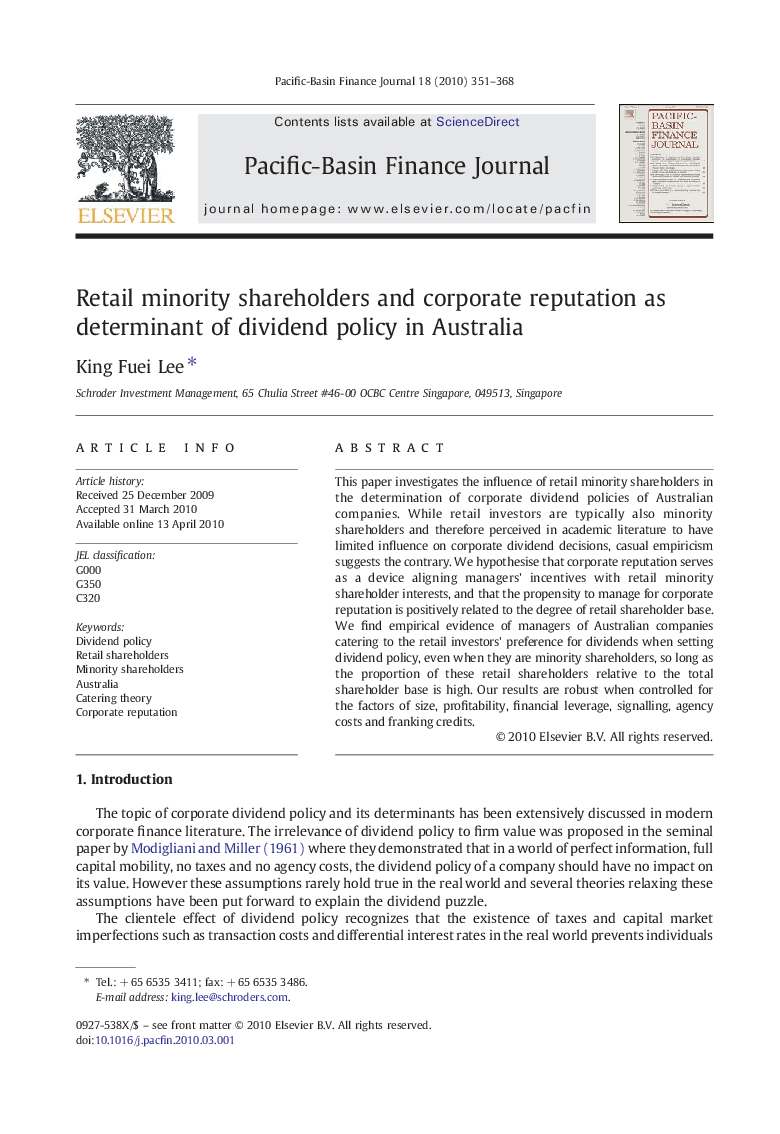| Article ID | Journal | Published Year | Pages | File Type |
|---|---|---|---|---|
| 973764 | Pacific-Basin Finance Journal | 2010 | 18 Pages |
This paper investigates the influence of retail minority shareholders in the determination of corporate dividend policies of Australian companies. While retail investors are typically also minority shareholders and therefore perceived in academic literature to have limited influence on corporate dividend decisions, casual empiricism suggests the contrary. We hypothesise that corporate reputation serves as a device aligning managers' incentives with retail minority shareholder interests, and that the propensity to manage for corporate reputation is positively related to the degree of retail shareholder base. We find empirical evidence of managers of Australian companies catering to the retail investors' preference for dividends when setting dividend policy, even when they are minority shareholders, so long as the proportion of these retail shareholders relative to the total shareholder base is high. Our results are robust when controlled for the factors of size, profitability, financial leverage, signalling, agency costs and franking credits.
